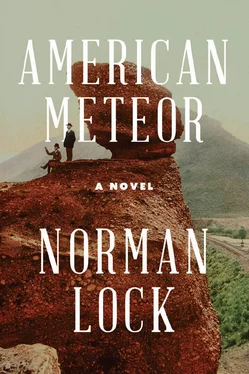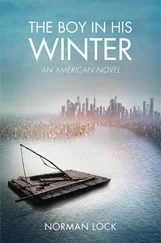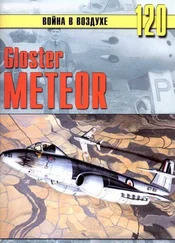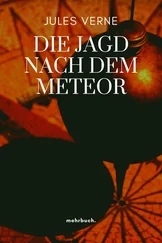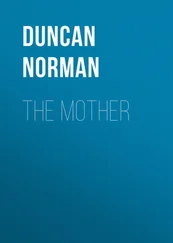“If we’re still here,” I said gloomily from the depths of my beard, waterproofed with the bear grease used by the Indians to pomade their hair.
Jackson treated me to his most scornful look, and for once I returned it. In 1873, when Hayden invited him along as photographer on a survey of the Central Rockies, Jackson didn’t ask me to accompany him. After Utah Lake, he considered me “pusillanimous.” Seventy-three was the year the bison herds on the Central and Southern Plains had been all but killed off and, with them, the resistance of their rightful inhabitants, who’d been pushed by treaty and bayonet onto squalid reservations in Indian Territory. Seventy-three was also the year of the great panic, brought about by overspeculation, mostly in railroads, and the damn Germans’ decision to stop minting talers, coins whose silver was mined in the American West. As a result, the Jay Cooke bank failed; Wall Street closed; work on the Northern Pacific transcontinental railroad halted; the country went onto the gold standard. The panic would finish Durant, who was like the rat that fell into a barrel of feed, gorged itself, and was exploded by its own appetite. Underneath the pile of prodigious events, I felt like a midget with a Barnum elephant on his back. And I felt as trapped by the snow as a grub in an Armour tin of spoiled meat.
“You should have stayed in Omaha and taken pretty pictures of the stiffs,” said Jackson. Fed up with roughing it, I’d do just that, though it would be in Lincoln, not in Omaha, where I’d eventually set up shop. He dismissed me with a shrug and began to gnaw on a mule bone, his supply of apricots long since exhausted.
I remembered George Osler’s saying, “They pay five dollars the ton for buffalo bones. They grind them up for fertilizer.” I wondered what the going rate was for famished human bones.
We hadn’t planned to spend the entire winter in the perishing cold. A fur trapper Jackson met in Denver told him of a Mormon settlement built around hot springs near the source of the Jordan River, to the north of us. But the snow lay too deep for the weakened mules, and Jackson refused to abandon his equipment and trudge there on foot. We tried, once, to reach the Jordan by traveling along the lake, but the poor mules slipped and slewed and slid onto their bellies like walruses.
I survived the long winter, but Fire Briskly Burning did not. Malnutrition and pneumonia took her, despite the bear grease in her hair. There is small nourishment in scanty fish and rodents. Her people took the body, its fire extinguished forever, and dealt with it according to their notion of the afterlife. I’ve asked myself many times what I’d have done if she had lived. I’ve never given myself a satisfactory answer. Jackson and I waited long enough for the mules to forage on the new shoots of grass, and then we walked out of the Wasatch and headed toward Omaha. We were silent while the wind in the pass told a complicated story of sadness and loss.
My spit never did freeze in midair, except in my imagination. I can’t say I learned to read Indians, either. But I insist that I came to know one of them sufficiently to rid my mind of the prejudice that they were no better than dogs. Stranger yet, a Lakota chief would show me the future in my dreams. It would fill me like seawater does a sponge — or vinegar, for I’d choke on its bitterness.
Omaha, Nebraska, May 25 (Decoration Day) 1874
After my blue funk in the Utah Valley, I busied myself in the Jackson Brothers’ studio, but William never again took me into his confidence or into the wilds with him to make pictures. My initiation into the mysteries of his art ceased, and I was left alone to hand-color the stereo views he sent back from the Rockies and the Yellowstone. I was only a little disappointed, for by now I’d realized I lacked his gift and would never have it, no matter how he might have led me — by insinuation or discipline — toward the sublime. The world was radiant for him, while I saw only glimmers in the general darkness, as you would on a sultry August night riven by an electrical storm: thrilling, terrible, and brief. For all my wanderings, I’m ordinary. I came to terms long ago with my littleness. A man is what he is — he can’t rise so much as an inch above his shortcomings — Horatio Alger be damned! I don’t hear you try to contradict me. I had my ages — childish, heroic, gilded, shameful — and I was content to let time stall around me, like a river shunted into a backwater. My atoms gloried in the change, as fish would to find themselves relieved of ceaseless effort. I languished, placidly, contentedly, thoughtlessly. At least I seldom gave my life a thought — me, who’d spent so much time examining it under the loupe of a fretful, helpless self-regard. I was worn-out from thinking, although what simmered below my mind’s awareness of itself was as unknowable as the life of fish — be they in the canals of Mars or the muddy water of the Missouri. I mean to say that my mind kept its secrets hidden from me.
I’ve not much more to tell about my three years of idleness in Omaha, where I waited — my house scrubbed clean of remembrance, so to speak — to take up the thread of my life once more; and I will pass over them without further notice, except for a Decoration Day by the Missouri River. That was in 1874—the year my history caught up with Custer’s in the Black Hills.
That morning, I treated myself to steak and eggs at the hotel where Durant used to put up before the panic finished him; got shaved and had my long hair cut by the hotel barber; and then I walked out to the riverbank, intending to do some fishing. As a rule, I didn’t care for fishing. Maybe I’d had my fill of God’s fifth day of creation, having been shanghaied by circumstances into oystering as a boy. But I had given myself enthusiastically to the luxuries of the flesh at rest and knew there was nothing so restful as sitting on a flat stone, warmed by the sun, and diddling with a bamboo pole. I didn’t much care what I caught with my godforsaken worm or even if I caught anything at all. I was glad to let my eye glaze over with the dancing river light and let my mind sink into its own tranquil ooze, sleepy with the murmur and drone of a hot May afternoon.
I must have fallen asleep and would have remained so had it not been for the ferocity of a chain pickerel that pulled the pole out of my hands and dragged it out onto the water. In a moment, it had bitten through the line and disappeared among the reeds and grass. I cursed the fish, for form’s sake, though I didn’t begrudge it the worm or the bamboo pole, either, even if it had cost me four bits. No, the pickerel had put an end to the last pretense of ambition for that holiday afternoon, and my thoughts turned toward a nocturnal visit to Madam Ida’s. But as I was searching my mind for the girl I’d choose to light my firecracker, I surprised myself by flushing Chen out of one of memory’s dark rooms. During the recent do-nothing years, I’d hardly thought of him at all — embarrassed, perhaps, by my indolence. Now, sitting on my flat stone, I recalled how, years before on this same riverbank, Chen had chided me for a rage that had blown up in me as sudden as a squall. I don’t remember now what had incensed me. Some highhandedness of the rich and powerful, I suppose. I had the soul of a muckraker in those days. Chen took my arm (a womanish gesture that made me flinch) and said, “You’re too earnest, Stephen. Earnest men are sometimes good, like Lincoln; sometimes fanatical, like Booth. It’s better to be calm; safer to take a tranquil view of things.”
Chen wasn’t perfect. I’ve idealized him in this recitation, but he had his faults, same as anybody — yellow, red, black, or white. While he was encouraging me to be philosophical about life, a man stepped out onto a pier just below us and dumped a litter of newborn pups into the river.
Читать дальше
